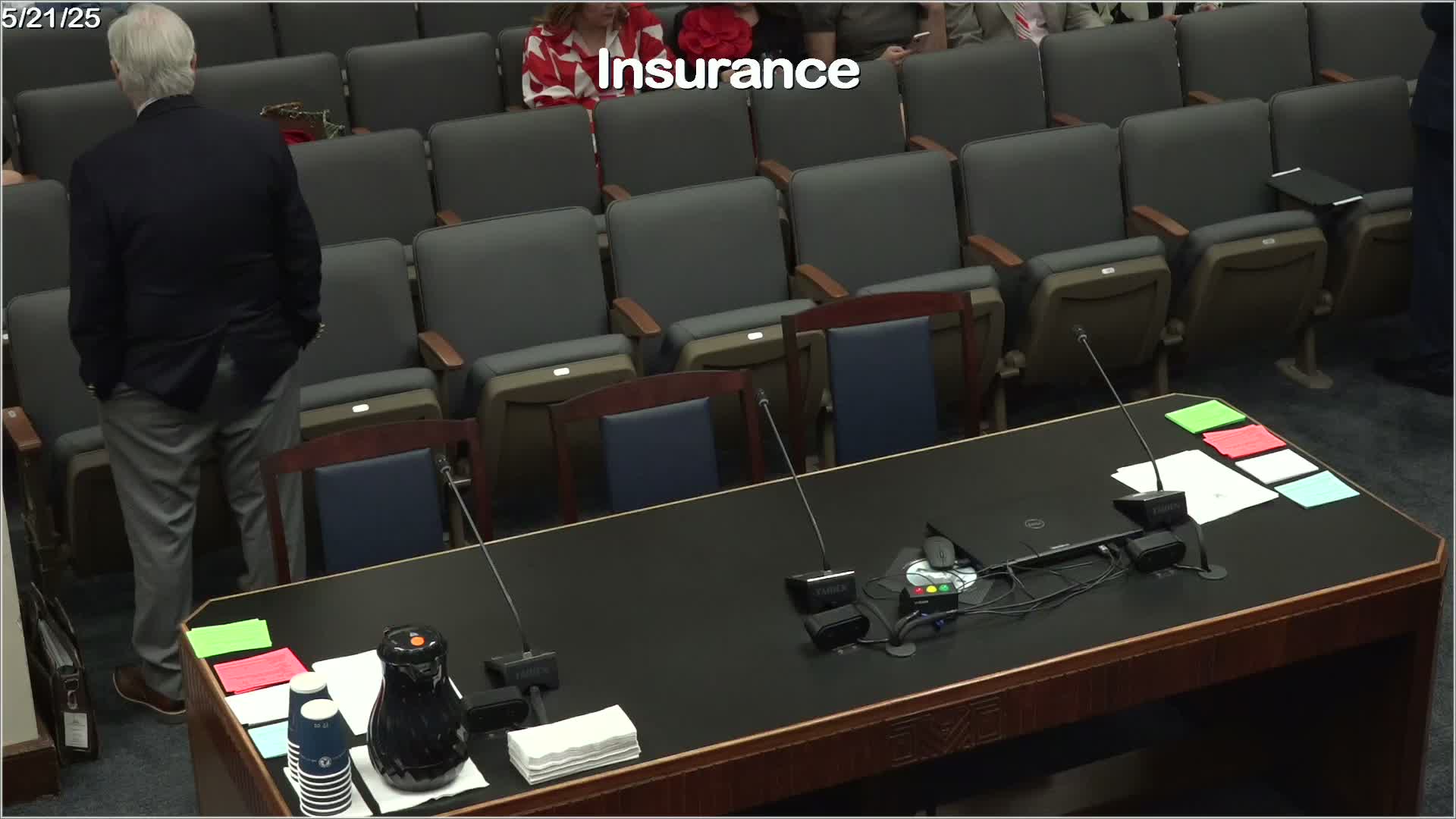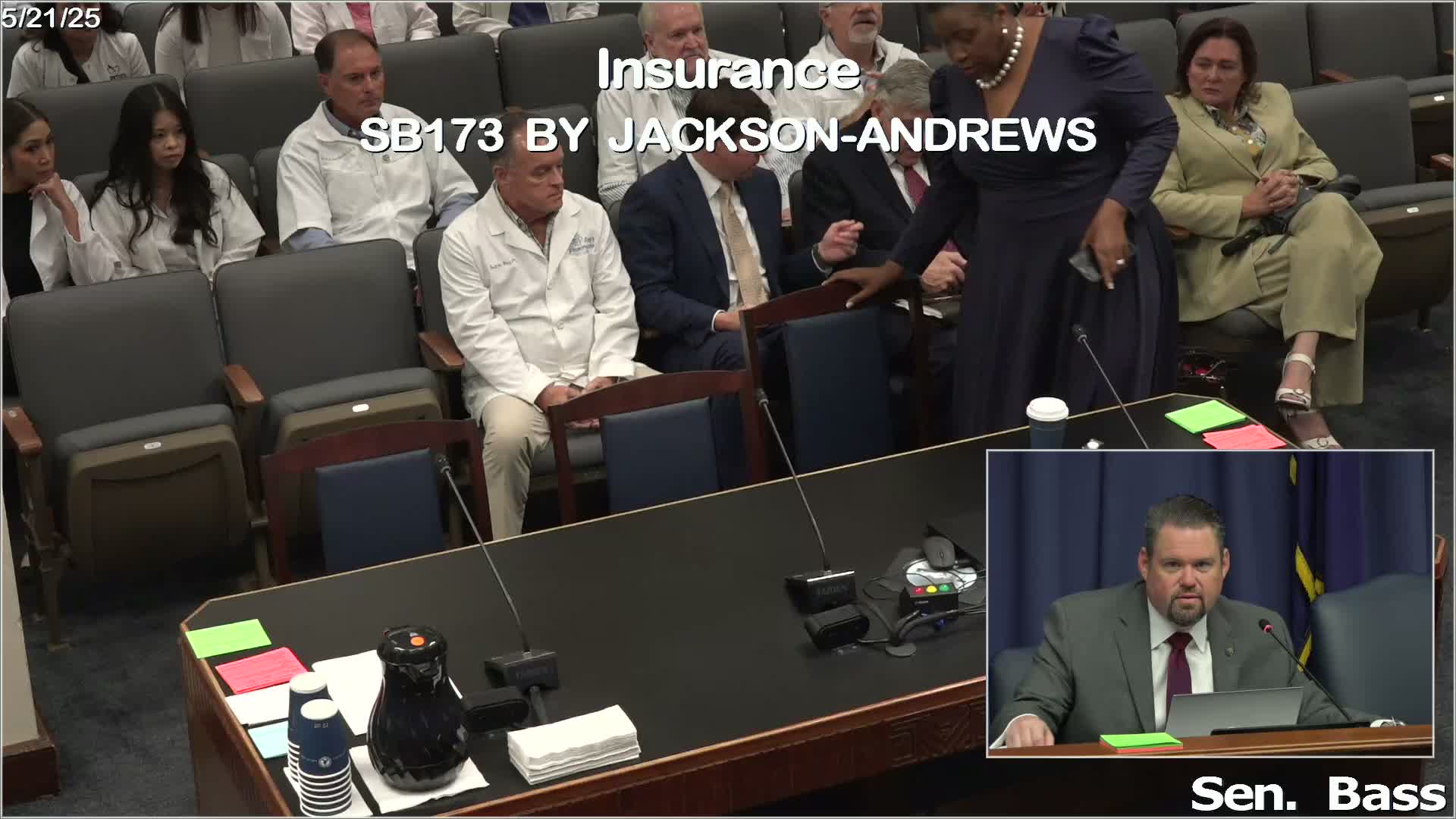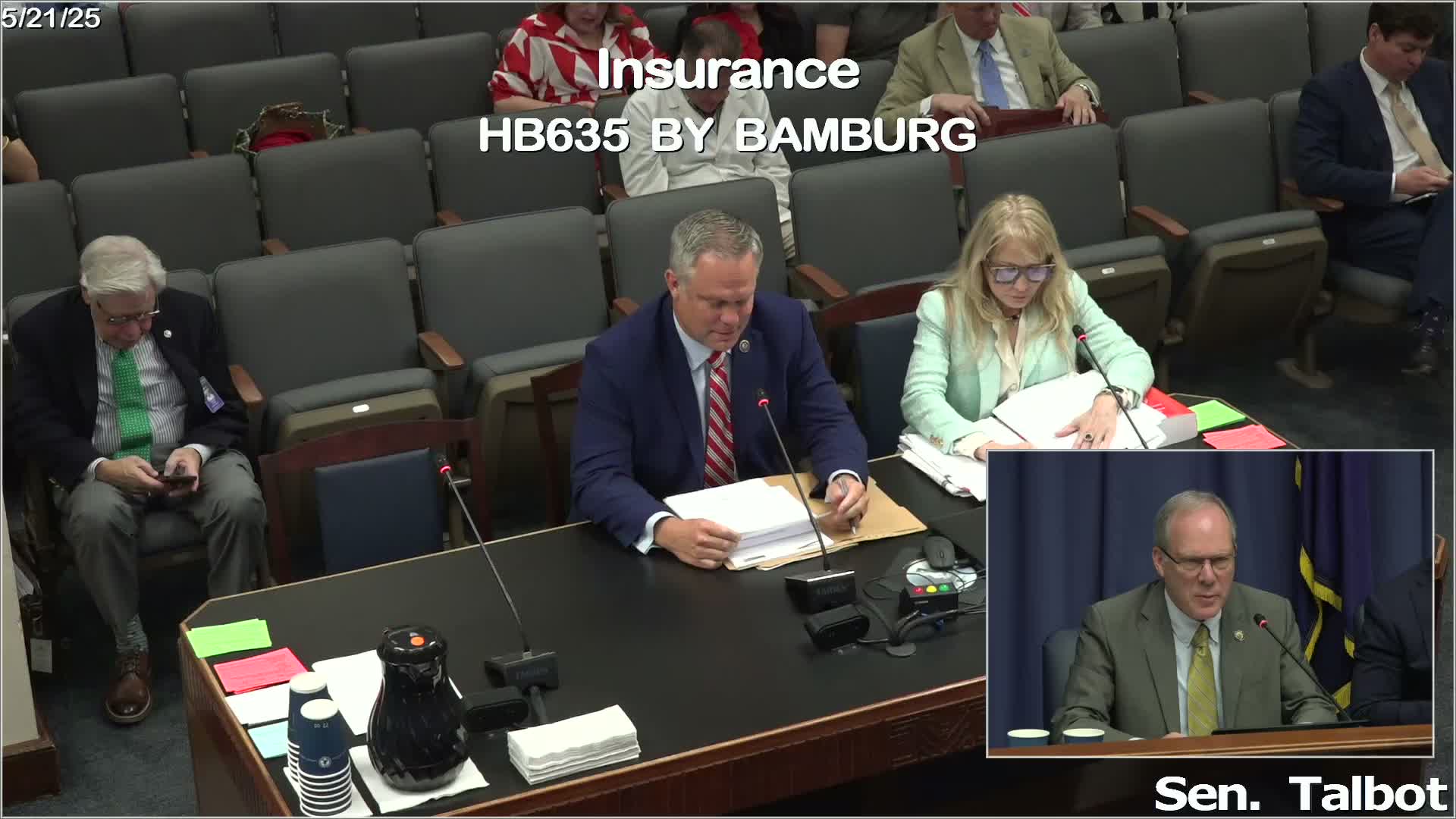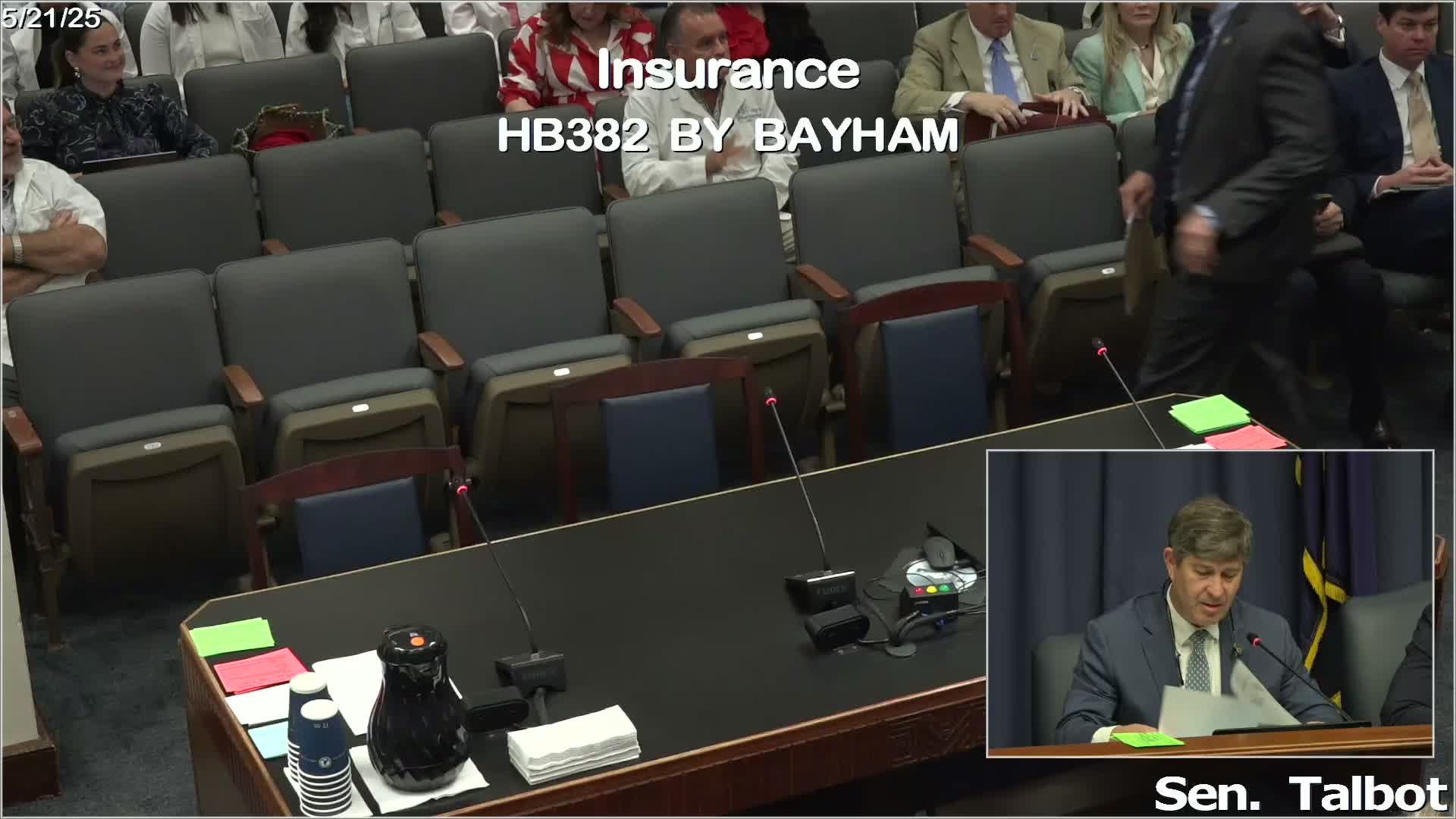Article not found
This article is no longer available. But don't worry—we've gathered other articles that discuss the same topic.

Senate committee advances bill requiring private insurers to cover voluntary home visits for newborns

Senate delays PBM reform bill after pharmacists present appeals, transparency concerns

Committee clears bill easing formation of domestic captive insurers

